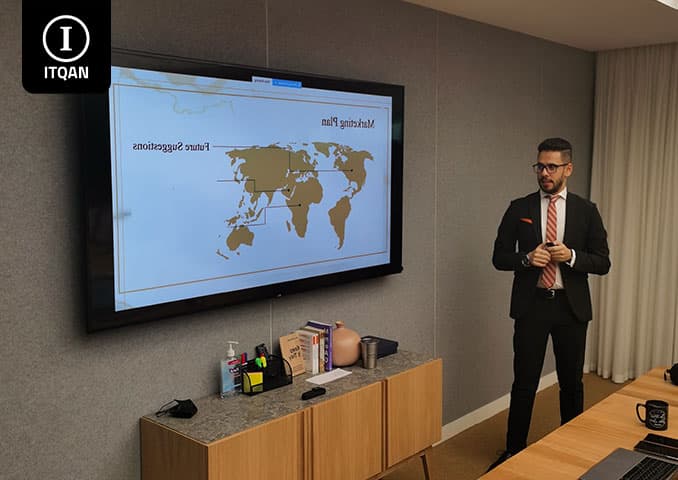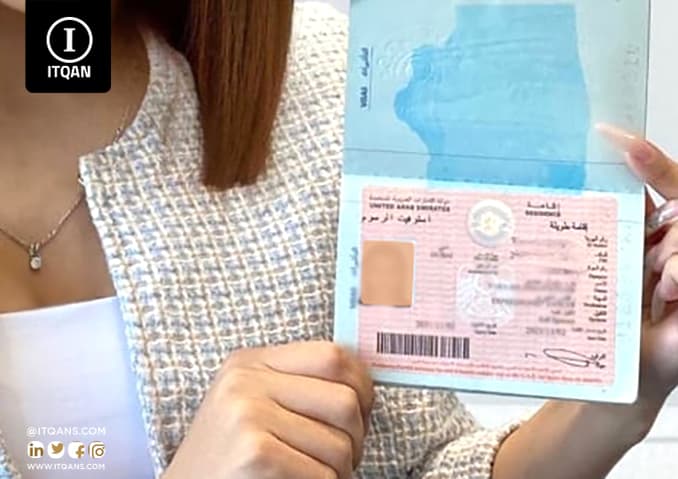Dubai, this vibrant city that is one of the most prominent global business destinations, offers endless opportunities for aspiring business owners. If you are thinking about starting a company in Dubai, understanding the procedures necessary to establish your company in Dubai is the first step towards success. With its dynamic economic environment, advanced business facilities, and open investment environment, Dubai is an ideal destination for companies of all sizes and industries. The procedures for opening a company in Dubai may seem complicated at first, but thanks to the advanced system and strong infrastructure, these challenges can be easily overcome. The journey begins by choosing the type of company you want to establish, whether it is a free zone company, a limited liability company, or a branch of a foreign company. This requires a careful understanding of the legal and administrative requirements associated with each type of company.

Procedures for opening a company in Dubai
جدول المحتوى
ToggleOpen a company in Dubai
Opening a company in Dubai is considered a strategic step for any businessman looking for growth and expansion in a dynamic and prosperous economic environment. Dubai, thanks to its strategic geographical location and cultural and economic diversity, has become one of the leading destinations for establishing companies globally. If you are thinking about starting a company in Dubai, here is an overview of the basic steps to make it happen.
First, you need to decide what type of company you want to start. Dubai offers a variety of options, including limited liability companies, public joint stock companies, sole proprietorships, and foreign branches. Choosing the appropriate type depends on the nature of your business and the organizational structure that you consider most appropriate to achieve your goals.
After choosing the type of company, comes the stage of choosing the trade name. The name must be unique and not similar to any other name in the market, and requires approval from the Department of Economic Development in Dubai. Next, the required legal documents, such as articles of incorporation and memorandum of understanding, are prepared and submitted, which must comply with local laws and regulations.
One of the crucial steps in the process of establishing a company is obtaining the necessary licenses. These licenses include approvals from multiple government agencies, such as the Department of Economic Development, the Ministry of Economy, and the Immigration and Passports Departments. The type of license required varies based on the business’s activity, so it’s important to make sure you follow the correct procedures for each type of business.
In addition, you should open a business bank account at a local bank to facilitate your company’s financial transactions. You may also need to rent a commercial office, depending on licensing requirements.
Economy in Dubai
Dubai’s economy is one of the most diversified and growing economies in the Middle East. The city’s economy depends on a wide range of sectors that contribute to achieving sustainable economic growth, providing job opportunities and attracting investments.
- tourism
Tourism plays a vital role in Dubai’s economy, as the city attracts millions of visitors annually thanks to its distinctive tourist attractions, such as Burj Khalifa, Burj Al Arab, and the Palm Islands. Dubai hosts many international events and festivals, such as the Dubai Shopping Festival and the Food Festival, which contribute to an increase in the number of tourists and increased tourism spending.
- commerce
Dubai is a global commercial center thanks to its strategic location and advanced logistics facilities, such as Jebel Ali Port, which is considered one of the largest ports in the world. The city benefits from its free zones, such as the Jebel Ali Free Zone and the Dubai Airport Free Zone, which provide attractive tax and regulatory advantages for businesses.
- Real estate and construction
Dubai has witnessed a huge real estate boom over the past two decades, characterized by huge real estate projects such as Dubai Marina and Dubai Sports City. This sector enhances the city’s economy by providing job opportunities and attracting foreign investments.
- Technology and innovation
Dubai seeks to become a global center for innovation and technology by establishing specialized technology zones, such as Dubai Internet City and Dubai Healthcare City. The government encourages startups and innovators by providing financial support and necessary facilities.
- Financial services
The Dubai International Financial Center (DIFC) is considered one of the most prominent financial centers in the world, as it includes a group of international banks and financial institutions. This sector contributes significantly to providing a developed business environment and attracting investments.
- Logistics and transportation
Dubai has a developed transportation network, including Dubai International Airport, which is one of the busiest airports in the world, and a modern metro network that connects parts of the city. This advanced infrastructure provides easy access to global markets and strengthens Dubai’s position as a regional logistics hub.
- Renewable energy
Dubai is seeking to shift towards a more sustainable economy by investing in renewable energy and environmental projects, such as the Mohammed bin Rashid Al Maktoum Solar Park. The city aims to reduce dependence on oil and promote alternative energy sources.
Costs of opening a company in Dubai
Dubai is considered one of the most attractive destinations for businessmen and investors around the world thanks to its thriving economic environment and advanced infrastructure. However, understanding the costs associated with opening a company in Dubai is a crucial step to ensuring the success of the venture. Costs vary based on company type, location and benefits requested. Here is an overview of the basic costs you may face when setting up a company in Dubai :
- Company Registration Fees: Company registration fees vary based on the type of company and location. For example, the fees for registering a company on the mainland are different from the fees for registering a company in the free zone.
- Business Licenses: The cost of business licenses varies based on the business activity you intend to undertake. General trade licenses are more expensive than specialized licenses.
- Location and offices: The cost of renting an office or headquarters for your company depends on the location and size of the office. Major commercial areas in Dubai such as the downtown area or free zones such as Jebel Ali can be more expensive.
- Visa costs: If you plan to hire employees, you will need to cover their visa costs and accommodation fees.
- Government fees: These fees include the costs of obtaining the necessary approvals and permits from the relevant government agencies.
- Legal Consulting Services: Hiring an attorney or legal advisor to guide you through the incorporation process can have an additional cost, but it saves you time and ensures compliance with local laws.
- Infrastructure and Equipment Costs: Includes office setup costs such as furniture, computers, communications and Internet.
- Insurance: Costs include business insurance and employee health insurance.
- Other costs: Other costs may include such as bank account opening fees, marketing and promotion costs.
Procedures for opening a company in Dubai
Establishing a company in Dubai requires following a set of specific procedures. Here are the basic steps you need to follow to open a company in Dubai:
- Choose the type of business: Determine the type of business you intend to do. Activities vary from trade, manufacturing, services, and others.
- Choosing a Company Name: Choose an appropriate name for the company according to Department of Economic Development (DED) regulations. Make sure that the name has not been previously registered and is in line with the specified terms and rules.
- Determine the legal form of the company: Decide on the legal form of the company such as a limited liability company (LLC), a private joint stock company, a branch of a foreign company, and others.
- Preparing the articles of association and partnership agreement: If there are partners, the articles of association and partnership agreement must be prepared and notarized by a notary.
- Obtaining initial approvals: Submit a request to obtain initial approvals from the Department of Economic Development. The application includes submitting basic documents such as a copy of the passport, and any additional documents depending on the type of activity.
- Select a business location: Choose a location to do business. The location must comply with urban planning requirements and an office or work space must be rented.
- Prepare a lease: Sign a lease for your chosen location and submit a copy of the contract to the Department of Economic Development.
- Submitting final documents: After obtaining initial approval, submit final documents that include the lease contract, articles of incorporation, partnership agreement if any, and any other required documents.
- Obtaining a commercial license: After reviewing and approving the final documents, the Department of Economic Development will issue the commercial license to the company.
- Chamber of Commerce Registration: Register the company with the Dubai Chamber of Commerce and Industry to obtain chamber membership which may be required for commercial activities.
- Obtaining additional permits: Depending on the type of activity, you may need to obtain additional permits from other regulatory bodies such as the health authority or municipality.
- Open bank account: Open a company bank account at a local bank to manage financial transactions.
- Social Security and Tax Registration: If you have employees, register the company with the Social Security and Health Insurance system, and register the company for tax if required.
- Insurance and Final Approvals: Ensure all necessary insurances and any additional approvals are obtained before commencing business operations.
Types of business licenses available in Dubai
In Dubai, there are several types of business licenses available to individuals and companies wishing to conduct business. These licenses vary according to the type of business activity and location, and among the main licenses that can be obtained in Dubai include:
- Commercial Trade License: Allows its holder to practice any general commercial activity, such as retail or wholesale sales of goods and services.
- Professional License: Issued to individuals who practice a specific profession, such as medicine, engineering, law, media, engineering consulting, and other professional services.
- Industrial License: Issued to companies that wish to establish a factory or industrial unit to produce goods.
- Tourism License: Issued to companies operating in the tourism and travel sector, such as tourism agencies and hotels.
- Free Zone License: It is issued in the various free zones in Dubai, and allows companies to enjoy many benefits such as customs exemptions, self-control, and legislation related to neighboring lands.
- Technology and Media Free Zone License: Issued to companies in the technology and media sector, and provides a suitable environment for telecommunications, information technology and media companies.
- Financial Free Zone License: Issued to companies operating in the financial and banking services sector, such as banks and insurance companies.
In conclusion of this article, it can be said that opening a company in Dubai requires careful and strategic procedures to ensure success and compliance with local laws. An essential step is to determine the appropriate type of company and prepare all the required legal documents, such as articles of incorporation and business licenses. It must also be ensured that all conditions and requirements specified by the local authorities are met, whether it is the Department of Economic Development or the selected free zone.
Moreover, entrepreneurs should benefit from the expertise of local advisors to help facilitate the incorporation process and save time and effort. Thanks to Dubai’s encouraging business environment and advanced infrastructure, new companies can achieve sustainable success and future growth in a growing global market.
The most important frequently asked questions about opening a company in Dubai
What are the basic requirements for establishing a company in Dubai?
Requirements include preparing a business plan, determining the location of the company, securing the necessary licenses, and providing the required capital.
What are the legal and administrative procedures necessary to establish a company?
Procedures include registering the company with the Department of Economic Development or the Free Zone, and obtaining licenses related to commercial activity.
What are the advantages and benefits you can get from establishing a company in Dubai?
Advantages include access to a diverse and global market, advanced infrastructure, and a business-friendly economic environment.
Can I establish a company in Dubai as a foreign investor?
Yes, foreign investors can establish companies in Dubai provided they comply with local laws and legislation.

















